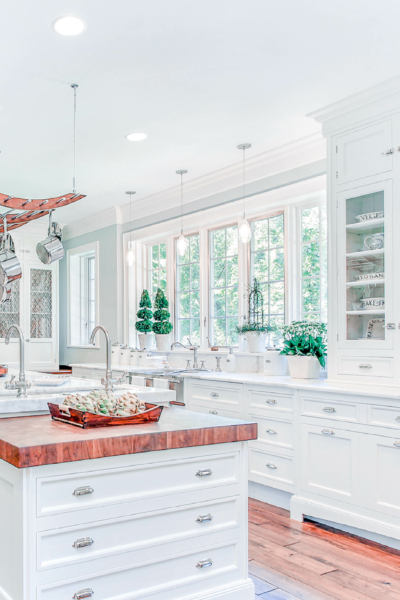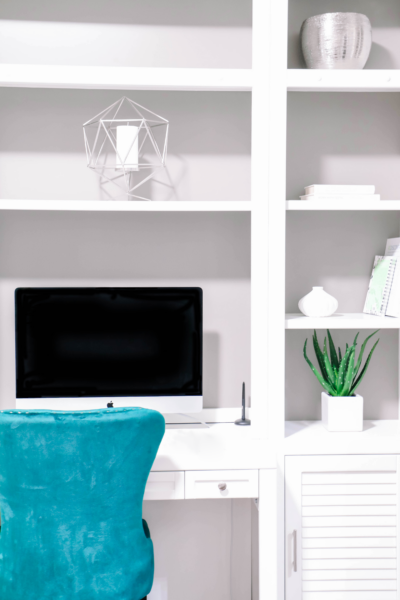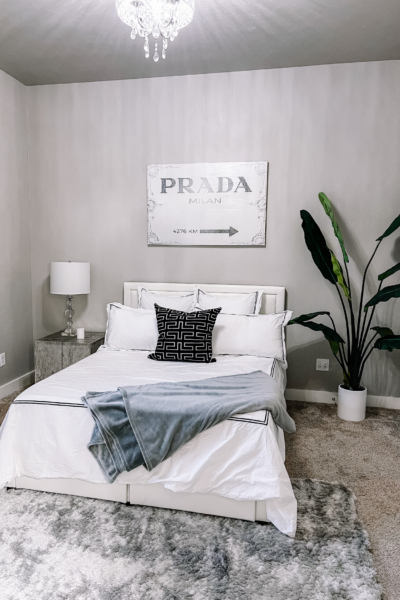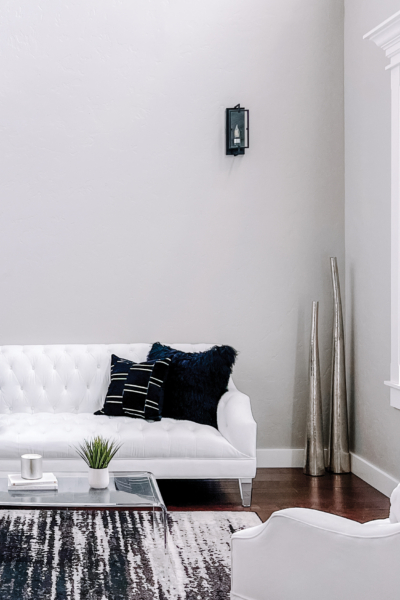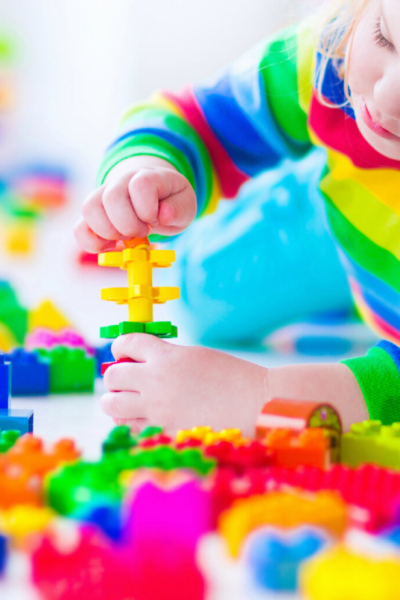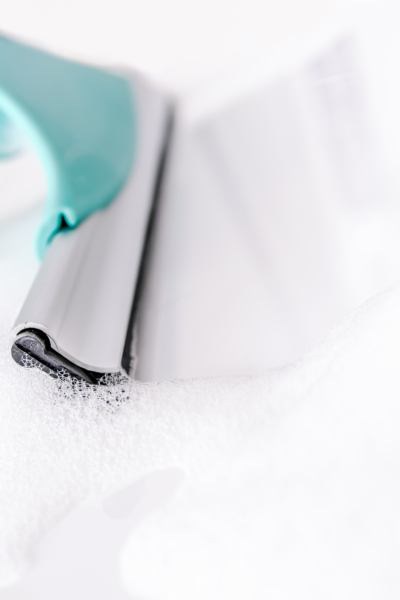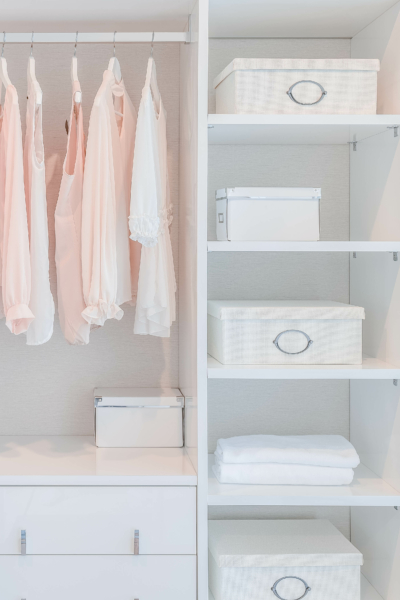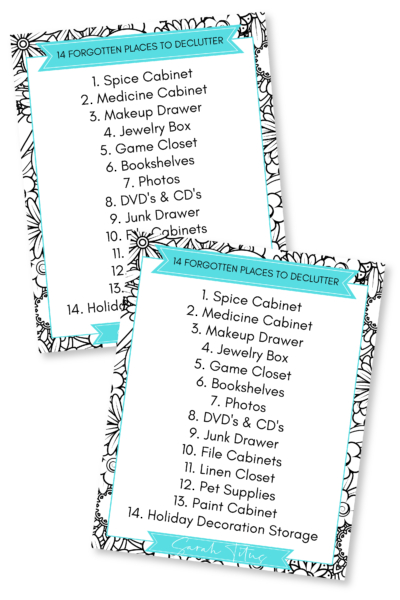Guest post by Sarah Mueller.
Holly is a young grandmother. She said, “I’ve reached a point where I need to do something. I work 2 or 3 evenings a week and keep my grandson during the day. I feel that I should be able to accomplish even a little bit more than I do now. A lot of that goes to being so overwhelmed and not knowing where to even begin. All the paper laying around and the financial issues it’s causing. Every time I start, I get so overwhelmed, that it just gets worse. “
Holly, like so many people, was completely overwhelmed by clutter and didn’t have any useful decluttering strategies. And the real problem with clutter isn’t just the stuff. A stranger could come in and clear out the “stuff” in a short amount of time. The real issue when you’re struggling with clutter and hoarding is the emotional aspect. The stress, the guilt, the anxiety, maybe even the shame.
If you’re struggling with clutter, you may know you want to do something about it, but you might not know HOW to start decluttering.
How to Start Decluttering
Here are some tips and ideas …
1. Before you start, decide on your “why”
Why do you want to declutter? What aspect of clutter is a problem for you? Is it that you can’t have people over? Is it because you’re losing things? Late on bills? Do you want to be able to eat dinner at the table again? Does all that stuff stress you out? Figure out one or two problems that you want to solve. Having this reasoning will give you motivation and energy to tackle the clutter.
2. Pick a defined area to start with
Don’t plan to declutter your entire house! That’s a recipe for frustration and overwhelm! Instead, pick a room, a shelf, even just a drawer to start with. Having a focused target will make it easier to finish and keep you on track.
I recommend starting with the kitchen. For most people, the kitchen is the center of activity at home. Decluttering the kitchen has tremendous benefits!
- You’ll be able to clean up more easily
- You’ll enjoy spending time in the kitchen
- You won’t be as stressed out when cooking and cleaning up
Decluttering your kitchen will pay off big time!
But even with a target area like the kitchen, you still need to narrow your focus. Start with a countertop, a cupboard, a single drawer or the fridge. Do one small section at a time, from start to finish (that includes getting rid of whatever you’re discarding) before you move to the next section. This way your kitchen doesn’t end up worse than when you started. If your counters are extra messy, that’s the ideal place to start.
3. When in doubt, throw it out!
Or as Elsa from Frozen reminds us, “Let it go…. let it go!”
Plenty of frugal people will disagree with me, but I firmly insist that if you’re at all considering decluttering something, the right answer is usually yes – get rid of it! Slay all those doubts: “I might use that…” and “I should use that – I paid good money for it,” and the guilt that goes along with them! Words like “might” and “should” are dangerous words when it comes to decluttering.
When you hold on to that hesitation (and the stuff that goes along with them), you’re carrying a burden that you do not need to bear! Freedom is waiting for you and all it takes is a choice to embrace it. So be brave – take all those unneeded things to the thrift store, or give them away or even toss them in the trash.
The money spent is gone – hanging on to the clutter isn’t going to bring the money back or make it more worthwhile. Plus, your peace of mind is worth a lot more than any extra set of dishes or mismatched pot lids. It’s not wasteful to declutter things you don’t need or love; it’s self-defense.
4. Rethink what it means to get rid of something
If you’ve paid good money for something, you may hesitate to declutter it, because you haven’t yet got your money’s worth out of it. But I suggest thinking about it in a different light. When you give away or sell your excess, you experience three blessings:
- Someone else is blessed with your excess
- You receive the benefit of a neater house
- You are relieved of all the guilt that goes along with the clutter.
So hanging on to clutter is actually depriving you of these blessings.
Decluttering is a very freeing experience. And the almost magic result of having less stuff is an easier home to maintain.
5. Pick your cheerleaders carefully
Some people are wonderful supporters of decluttering. Let these people encourage and support you! Share your plans and your progress with them. Enlist their help. They will make a huge difference to your success!
But not everyone is as supportive of the wish to declutter. They may consider it wasteful. They may try to rescue things you’ve marked for the trash. They may make you feel terrible for not loving a particular item.
One of my readers told how when she was a teen, her mother would sabotage her decluttering efforts by retrieving things from a trashbag and putting them back in her closet. Can you imagine how hard it is for her to declutter now?!
With unsupportive friends and family, the best strategy is to be firm about your plans and do as much decluttering as possible when they’re not around. No one else has the right to dictate what you keep in your own home.
With family members who live with you, you’ll have to be creative to come up with solutions that work for the whole family. One person shouldn’t get to make all the decisions.
What if you’ve tried to declutter in the past but it always seems like you haven’t made a dent?
If you feel like you’ve tried and failed to declutter in the past, you may have made one of these mistakes:
1. A big decluttering mistake is trying to do too much at once.
It’s easy to start a project like decluttering with much enthusiasm! You can read plenty of inspiring articles and dream of the zen-like home that awaits you. But it’s harder to stay inspired when you’re in the middle of a mess because you’ve emptied all your cupboards onto the floor!
Decluttering, like any big project, is a messy thing. You’ll have to make hard decisions. You may have regrets over wasted money. There’s heavy lifting to do! So take the work in bite-sized pieces. Pace yourself so you don’t burn out. You’ll also have to take your physical and external limitations in mind. If you’ve got little kids, you’ll probably need to find some child-free hours in order to make a big dent. If you’ve got health problems, you’ll have to take it slow and steady. You may need to have some challenging conversations with your family.
So set modest goals and keep going. Decluttering your home should be a marathon, not a sprint!
2. Another decluttering error is not being willing to let anything go.
If you find yourself wanting to keep everything, you’re just organizing your clutter. You won’t be any better off at the end and you might be even more frustrated.
Making excuses will sabotage your decluttering efforts every time. Maybe you haven’t decluttered successfully because it wasn’t the right time or you were waiting to move. Maybe you were waiting on someone else to go through things stored at your home. Whatever has held you up in the past – figure out if it was an excuse and then be honest with yourself. The time is never perfect for decluttering – you have to make it a priority and get it done.
3. Trying to sell lots of clutter is another mistake people make.
Selling things is an excellent way to earn extra income! But if you’re not an experienced seller or you’re short on time, giving things away is a much better strategy! You can take everything to the thrift store in a trip or two and be done with it! Or give things away to friends who need them. When you give things away, you’re not bothered the same way you would be if you sold them for much less than you paid. Giving a gift (even if it’s your own clutter) is lots more fun than selling that same clutter for a few bucks. And the truth is, that some clutter just can’t be sold. So save yourself the trouble and plan to give away as much as you can.
4. Some people don’t successfully declutter because they bring in new things as quickly as they get rid of the old.
As you declutter, hopefully you’re gaining a new perspective on your possessions. Even if something is a great deal, take time to decide thoughtfully if it’s something you have room for in your home. Too many shopping trips (especially to Walmart – here’s why you should never shop at Walmart!) will clutter up your home in no time! If you love to shop, you’ll have to find a new hobby – one that doesn’t fill up your home and empty out your wallet.
One big area of clutter is kids’ toys.
Toys are easily strewn across the floor. Little kids get overwhelmed by too many toys and they have a hard time picking up when they’re done playing. Moms often feel bad decluttering their kids’ toys. They worry they will upset their kids by insisting that some of the toys have to go. Or their relatives keep bringing in more toy clutter.
But what usually happens when you declutter toys is that kids end up being much happier, playing for longer periods or time, and actually enjoying how easy it is to clean up! So don’t hesitate to declutter the toys!
Clutter doesn’t have to cause you stress and anxiety! Take steps today to start decluttering and organising and enjoy a happier life!


